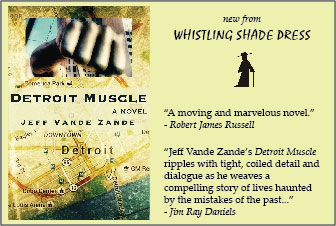
| <- Back to main page |

|
by Lee Henschel Jr.
Tuesday, December Eleventh, 1798
14°N by 17°W - about twenty miles west of Dakar
Late this evening our stellar observations were suspended when the sailing master heard an unexpected sound coming from somewhere to starboard ... unseen in the dark. Herewith is my account of the incident, entered in the log of Midshipman Owen Harriet, serving aboard the Lively Class frigate, HMS Eleanor:
The sailing master cocked an ear, first to hear some distant thing. Then I heard, as well. A thin sound, yet knowable ... three faint notes played on a pipe, then repeated.
“Something’s amiss, Harriet. Go below and inform the captain.”
I went leg-over down a backstay, landing cat-quick on the spar deck. There was Chutney ... Eleanor’s piper. A thought occurred.
“Chutney, do you have your pipe with you?”
“Aye, Mr. Harriet.”
“Then go aloft and play it from the maintop. Just three notes at a time, then stop and listen.”
The piper started aloft, but hauled short at the chains.
“What do you want me to play, Mr. Harriet?”
“Anything. Just play it loud. There’s someone out there in the dark. He’s playing on a pipe, and if he hears you playing then he might play back. And by that we may find him. Go now.”
I went below to fetch the captain. A marine sentry stood his post outside the great cabin ... Corporal Pillow.
“What do you want, boy?”
“Corporal Pillow, be so kind as to wake the captain and tell him you love him more than you love me.”
Pillow stopped working his quid. “And what do you mean by that?”
“Well it’s clear you must love the captain more than you love me ... since you address him proper, but won’t do the same for me.”
Pillow smiled, if just a bit.
“Aye, Mr. Harriet.”
“That’s better. Now then, bestir the captain and tell him I have information from the sailing master.”
Pillow returned with Captain Praether.
“What is it?”
“The sailing master’s compliments, sir, and he wishes to inform you there’s a sound coming from starboard.”
“What sound?”
“I seems someone’s playing on a pipe, sir.”
We made for the companionway. Chutney still played his pipe and now, in the dark, some unseen piper mimicked his notes. The captain called for the helm to come about. Eleanor spilled her wind and we lost way. Soon a dinghy emerged from the gloom, stern on, and close enough to reveal a ship’s name and home port stenciled on its transom.
Elizabeth Carton
Charleston
The captain spoke. “I begin to understand.”
“Sir?”
“Charleston’s in South Carolina. It’s the home of the Royal Exchange ... a slave auction. Surely that dinghy‘s from Elizabeth Carton, and I suspect the Carton must be a slaver, since there’s no other reason for a commercial vessel to be in this latitude.”
The sailing master replied. “Likely she was trading at Dakar, sir. And after the last storm that dinghy might be all that remains of her.”
“Aye. Fetch the bosun.”
The bosun arrived prompt.
“Gleason, lower the cutter and tow that boat to the entry port.”
Soon thereafter Gleason hooked on with the dingy in tow. We gathered at the rail to see who was in it. One lone figure ... tucked small between the thwarts.
Gleason called to the captain. “A slave, sir. Still in shackles.”
“He may carry typhus so be sure to stay clear of him. I’ll send down the ship’s surgeon.” The captain turned to a ship’s boy. “Fetch Mr. Starling. Then go find the carpenter. Have him bring a cold chisel and maul.”
Starling arrived and went into the dinghy. In a moment he pronounced the slave clear of disease, and had him swayed aboard. The carpenter arrived. With one swing of his maul he sheared the man’s shackles. He was young, and lay curled on the spar deck still clutching his flute. Naked. Skin most black. He wasn’t the first Negro I’d seen, for I’d watched them on the Hard in Portsmouth. But they’d been free men, and acted as such. But this man cowered wretched, shrinking from Starling’s kind touch.
Starling backed away. “God have mercy on him.”
“Is he injured?”
“I think not, sir. But he may die of fright. I think it best not to move him. I’ll cover him with a tarp, then stay with him.”
The captain turned to us. “I doubt we’ll ever know how this man came to be in that dinghy. He may be the lucky one, though. If Carton went down in the storm, then she went down with a cargo of slaves bound for Charleston. Two hundred souls ... maybe more.”
“Should we look for survivors, sir?”
“We’ll search until first light. Then I must bring Eleanor within sight of land and put this man back in his dinghy ... close enough to row himself ashore. That’s the best we can do. We must take advantage of this wind, and move on.”
By first light the search had found nothing. No bodies. No flotsam. If the Carton went down, then she went down with no trace ... but for the dinghy and its passenger.
A lookout hailed the deck. “Land! Bows on!”
I glassed the shoreline. “I believe that’s Serbro Island, sir.”
“Very well. Gleason, return our passenger to his dinghy, and stand by.”
A mile off Serbro Gleason unhooked the dinghy and Eleanor stood into the wind, leaving the dinghy in our wake. But the passenger didn’t row, he only sat watching us. The dinghy grew small, then became a tiny dot on the horizon, then fell off.
“He never rowed,” I said to no one. “Not even once.” 